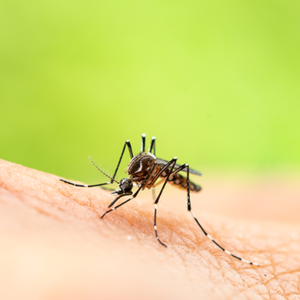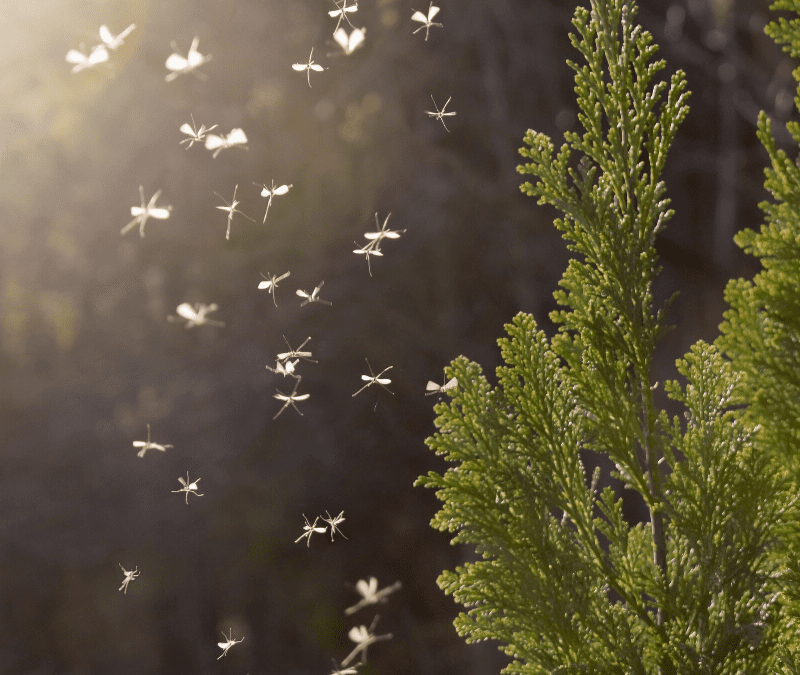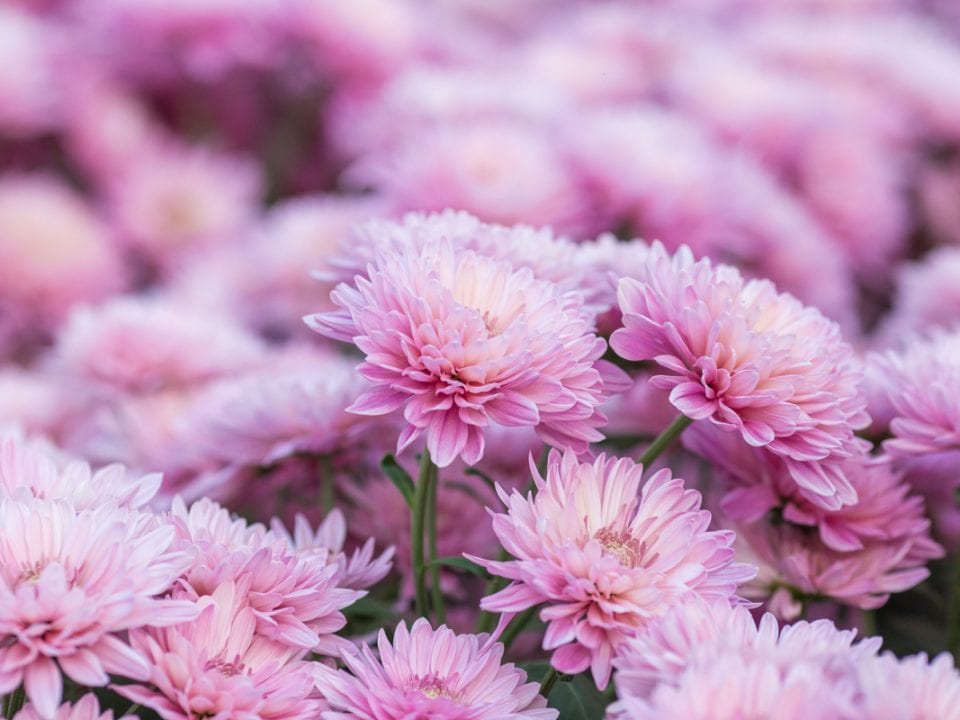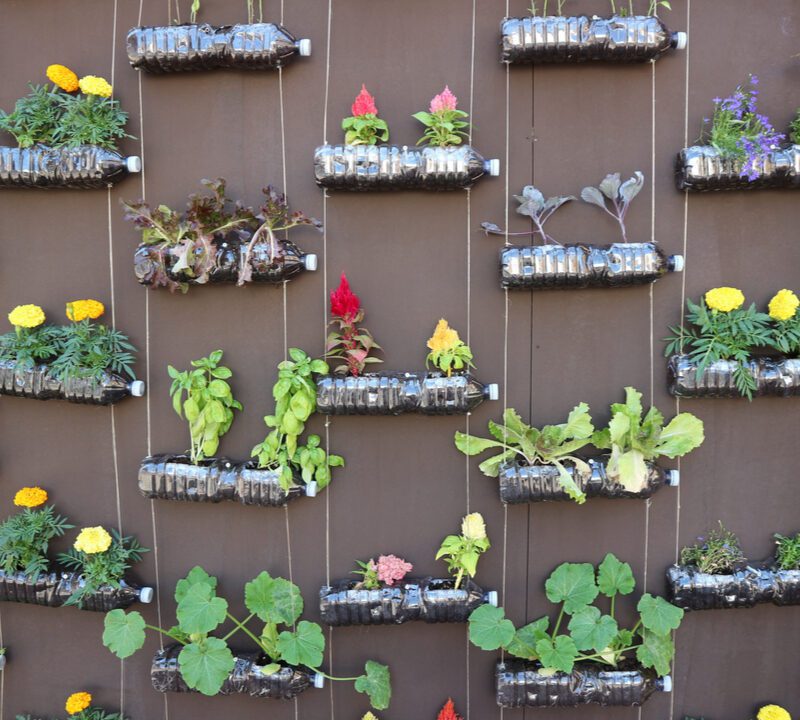- America's #1 lawn care company.
- 225-752-7252
Why Mosquitoes Need Blood And Other Things You’ve Wondered About Them

8 Things You Never Knew About Spiders
May 10, 2021
These Are The Most Common Tree Pests In The South
June 7, 2021Summer would be perfect if it weren’t for the bites of mosquitoes. They are undoubtedly the most hated insect in history. But have you ever wondered why they need to bite us in the first place? Today, we’ll explore some of the most common questions relating to mosquitoes.
Things You’ve Wondered About Mosquitoes
Why Do Mosquitoes Eat Blood?
The answer is: they don’t. It’s a common misconception that mosquitoes “drink” blood. But they don’t consume it for the nutrients. Female mosquitoes need the blood to lay their eggs. The blood allows the eggs to mature inside the mama before she lays them.
Do All Mosquitoes Bite?
All female mosquitoes bite. The male mosquitoes are happy to dine on plants in the environment.
How Do Mosquitoes Find Targets?
Mosquitoes follow the trail of carbon dioxide we exhale, sweat from our pores, and even our body heat to track us down. Once they land on you, they can actually “taste” your skin via their feet, which helps them decide where to bite.
Why Are Mosquitoes Such A Big Deal?
Mosquitoes have killed more people than any other cause in history – and that includes pandemics, wars, and famine. Mosquitoes spread malaria to 250 million people each year, and one million of those people will die as a direct result. And that’s just malaria. They can also spread Zika, West Nile, dengue, and other diseases. What’s even more astonishing is that humans have developed evolutionary advantages to combating mosquito-borne malaria. You’ve probably heard of sickle cell anemia, which is a condition that affects the shape of red blood cells, causing them to deform. Many people in sub-Saharan Africa have this condition because, while it causes numerous health problems, it does give the victim an advantage against malaria. For as tiny as a mosquito is, affecting humanity’s genome is a pretty big deal!
How Long Have Mosquitoes Been Around?
Remember the original Jurassic Park movie from the ’90s? The story’s premise was that a mosquito had long ago bitten a dinosaur and therefore had its DNA stored in its stomach when it was trapped in amber. This DNA was later extracted and cloned to bring life to the dinosaurs of the park. While the second part of that story is farfetched, mosquitoes most likely did enjoy a meal of dinosaur blood! According to the fossil record, mosquitoes were around between 120 and 210 million years ago – directly during the period when dinosaurs roamed!
What Is The Best Way To Get Rid Of Mosquitoes?
Hiring a mosquito control service like TruGreen is the best protection you can get. The treatments will target both adult and larval mosquitoes and kill them no matter the stage of life. You should absolutely use bug spray with DEET or Picaridin if you’re going to an outdoor event, a park, or camping. However, this will merely repel mosquitoes, not eliminate them.
Are There Effective Natural Mosquito Repellants?
The only “natural” mosquito repellant that is measurable effective at preventing mosquitoes is the oil of lemon eucalyptus. Note: this is not the same as “lemon eucalyptus oil,” the common fragrance you would find with the essential oils at your grocery store. The CDC has approved the oil of lemon eucalyptus as a natural alternative to synthetic insect repellants.
Where Do Mosquitoes Lay Their Eggs?
In a word: anywhere. Anywhere there is shallow still water. If you’ve got a fountain that runs constantly, you won’t need to worry. But things like ponds, birdbaths, or even lawns prone to flooding could be nesting grounds for mosquitoes.
What Else Can I Do To Prevent Mosquitoes?
Keep up with lawn maintenance! If your yard has pooling water, consider an aeration treatment to break up the thatch layer. If you opt for a professional mosquito control application, ask your pest control technician if there are problem areas of your property. These include things like piles of dead leaves or fallen branches. The tidier your yard, the less likely you’ll have a mosquito infestation or any pest problem.
Find Pest Control Near New Orleans
Mosquito season is starting, but that doesn’t mean you have to tolerate these dangerous pests. The experts at TruGreen Midsouth provide not only mosquito control but also flea and tick control to knock out any and all bugs that seek to ruin your outdoor fun. For more information, give us a call or drop us a message online.
For service in Louisiana, call: 225-465-0665 or check out our local Facebook page.
For service in Mississippi, call: 662-330-1330 or check out our local Facebook page.




